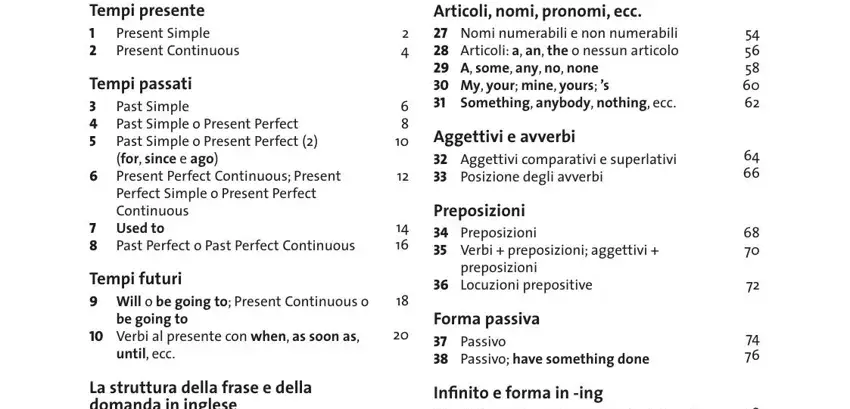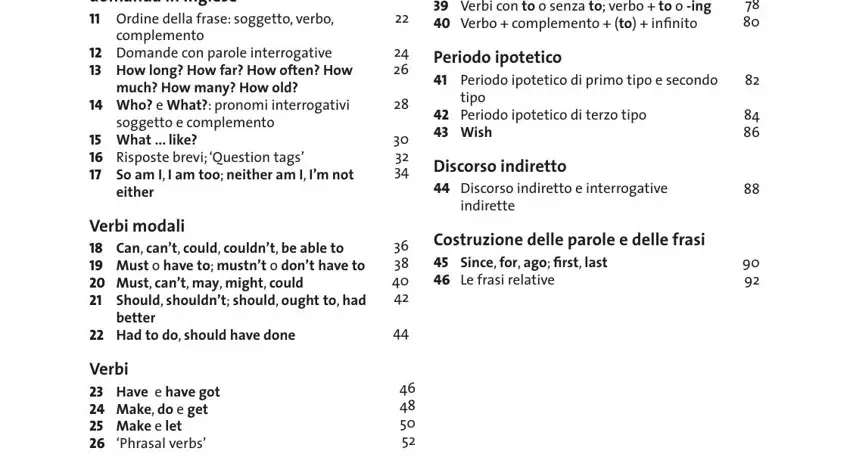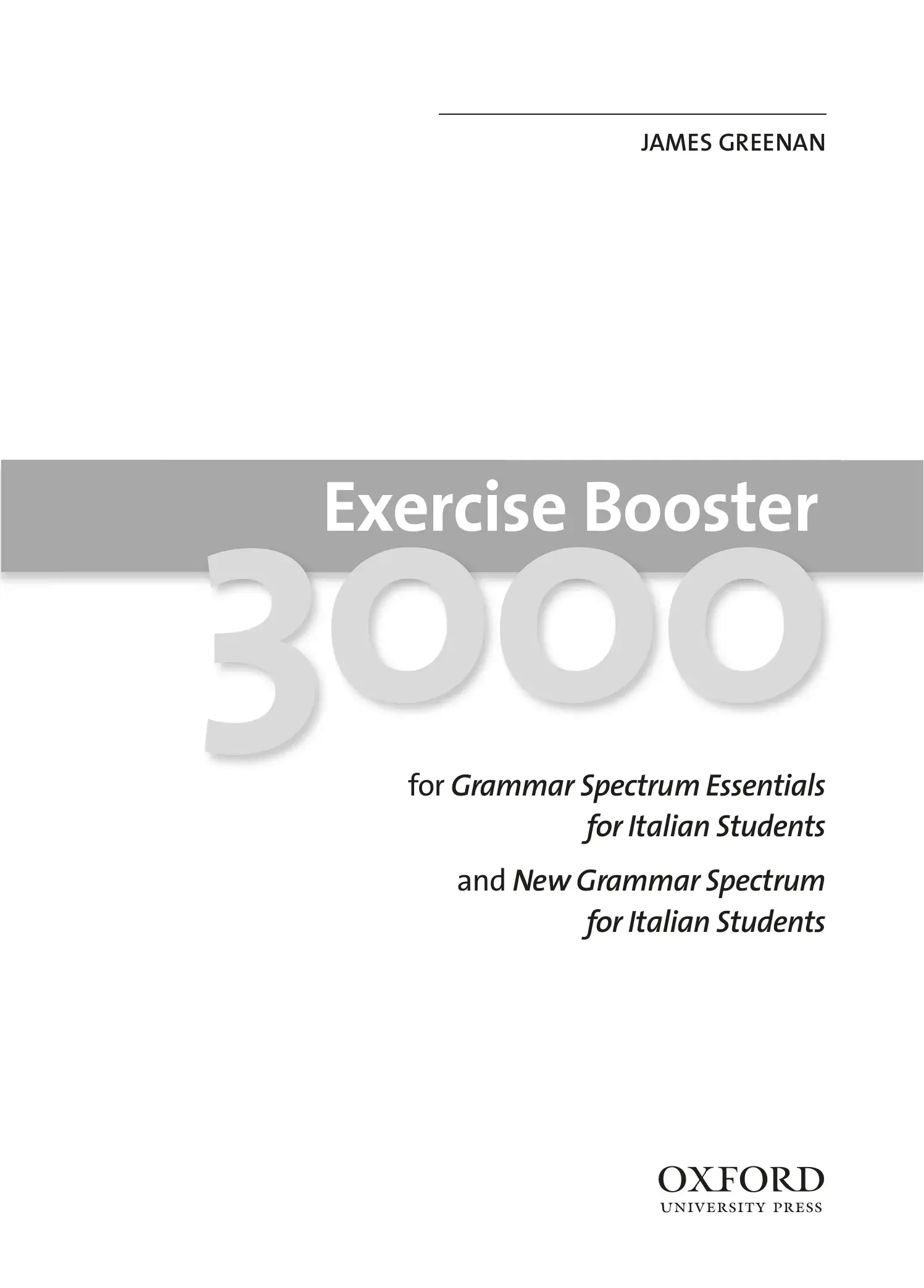You'll be able to fill in new grammar spectrum for italian students pdf effortlessly by using our PDF editor online. Our team is devoted to providing you the ideal experience with our tool by constantly presenting new functions and improvements. Our editor is now even more intuitive as the result of the latest updates! Currently, working with PDF files is easier and faster than ever. To get started on your journey, consider these simple steps:
Step 1: Just hit the "Get Form Button" at the top of this page to get into our form editor. There you will find all that is needed to fill out your document.
Step 2: As you start the PDF editor, you will find the form ready to be completed. Apart from filling in various fields, you can also perform other sorts of things with the Document, including putting on custom words, modifying the original textual content, inserting graphics, signing the PDF, and more.
This form will require specific information to be filled out, therefore be sure to take whatever time to fill in what is required:
1. The new grammar spectrum for italian students pdf requires particular information to be entered. Ensure the subsequent blank fields are complete:

2. The third stage would be to complete all of the following fields: La struttura della frase e della, complemento, Domande con parole interrogative, much How many How old, Who e What pronomi interrogativi, soggetto e complemento, What like Risposte brevi, either, Verbi modali Can cant could, better, Had to do should have done Verbi, Ininito e forma in ing Verbi con, Periodo ipotetico Periodo, tipo, and Periodo ipotetico di terzo tipo.

Always be extremely attentive while filling in better and Had to do should have done Verbi, because this is the section in which a lot of people make a few mistakes.
Step 3: Ensure the details are right and just click "Done" to proceed further. Right after creating afree trial account with us, it will be possible to download new grammar spectrum for italian students pdf or send it via email directly. The PDF will also be readily available via your personal account menu with your every single edit. FormsPal ensures your information confidentiality with a secure method that never saves or shares any kind of private data involved in the process. You can relax knowing your paperwork are kept protected every time you use our editor!



